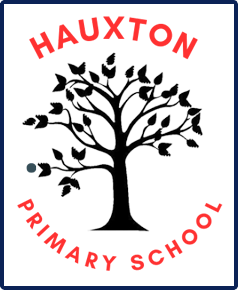"Being The Best That We Can Be".
At Hauxton, we encourage and support all staff and children to be the best that they can be at all times. We value effort as well as attainment and insist that staff model the same high expectations for manners, respect and behaviour that we ask of our children.
How We Promote British values at Hauxton Primary School
Democracy
UN CRC Article 12: Children have the right to say what they think should happen, when adults are making decisions
that affect them, and to have their opinions taken into account.
We have a School Council. Each class elects two representatives annually after hearing each candidate speak. These children listen
to the opinions and ideas of their class and feedback to the Headteacher
We encourage volunteering in and out of school. This includes Play leaders, lunch helpers, School Travel Ambassadors and also raising
money for local and national charities.
The beginnings of democracy are taught through historical research of the Ancient Greece civilisation.
Democracy is also promoted through additional PSHE lessons and assemblies.
Children are taught about the United Nations Convention on the Rights of the Child and learn to respect their rights and the rights of others.
The rule of law
UN CRC Article 19: Governments should ensure that children are properly cared for, and protect them from violence, abuse and neglect by their parents, or
anyone else who looks after them.
We have high expectations about pupil conduct and this is reflected in our Behaviour Policy. There are rewards for exhibiting the school values and for teamwork.
Our School Council participate in the annual review of our Behaviour policy.
Through our school assemblies, circle time and PSHE children are taught how to earn trust and respect and are supported to develop a strong sense of morality; knowing right from wrong and doing the right thing even when it’s difficult.
The local police officer / PCSO visit the school to talk to the children and explain about their role in society.
Children are taught about the United Nations Convention on the Rights of the Child and learn to respect their rights and the rights of others.
Individual liberty
UN CRC Article 31: All children have a right to relax and play, and to join in a wide range of activities. UN CRC Article 15: Children have the
right to meet together and to join groups and organisations, as long as this does not stop other people from enjoying their rights.
Children are taught about the United Nations Convention on the Rights of the Child and learn to respect their rights and the rights of others.
Through our school values and PSHE program, children are taught about personal responsibility, choices, ambition and aspiration. They are encouraged to take opportunities to follow their interests in art, music, sport etc.
A week of activities takes place in the summer term under the banner of Happy, Healthy week Children are taught how to keep themselves safe, including on-line. This is done through computing lessons, assemblies and outside organisations such as the NSPCC, as well as through the PSHE curriculum.
Mutual respect
UN CRC Article 2: The Convention applies to everyone whatever their race, religion, abilities, whatever they think or say and whatever type of family they come from.UN CRC Article 30: Children have a rightto learn and use the language andcustoms of their families, whether theseare shared by the majority of people in
the country or not.
We have high expectations about pupil conduct and this is reflected in our Behaviour Policy and Equality Policy.
Children are taught about the United Nations Convention on the Rights of the Child and learn to respect their rights and the rights of others.
Through our school’s values, PSHE, circle time and assemblies our children are taught to respect each other, to be cooperative and collaborative, be supportive and to look for similarities while being understanding of differences.
Tolerance of different faiths and beliefs
UN CRC Article 14: Children have the right to think and believe what they want, and to practise their religion, as long as they are not stopping other people from
enjoying their rights. Parents should guide their children on these matters.
We have high expectations about pupil conduct and this is reflected in our Behaviour Policy and Equality, Diversity and Cohesion Policy.
Tolerance of different faiths and beliefs is promoted through the scheme of work for Religious Education. Children learn about different religions, their beliefs, places of worship and festivals. R.E.
days provide opportunities for children to work together to explore their differences and similarities
This is supplemented by which also mark and celebrate significant religious festivals such as Ramadan and Diwali.
Visits are made by local religious leaders and children have the opportunity to visit places of worship.
Children are taught about the United Nations Convention on the Rights of the Child and learn to respect their rights and the rights of others.
